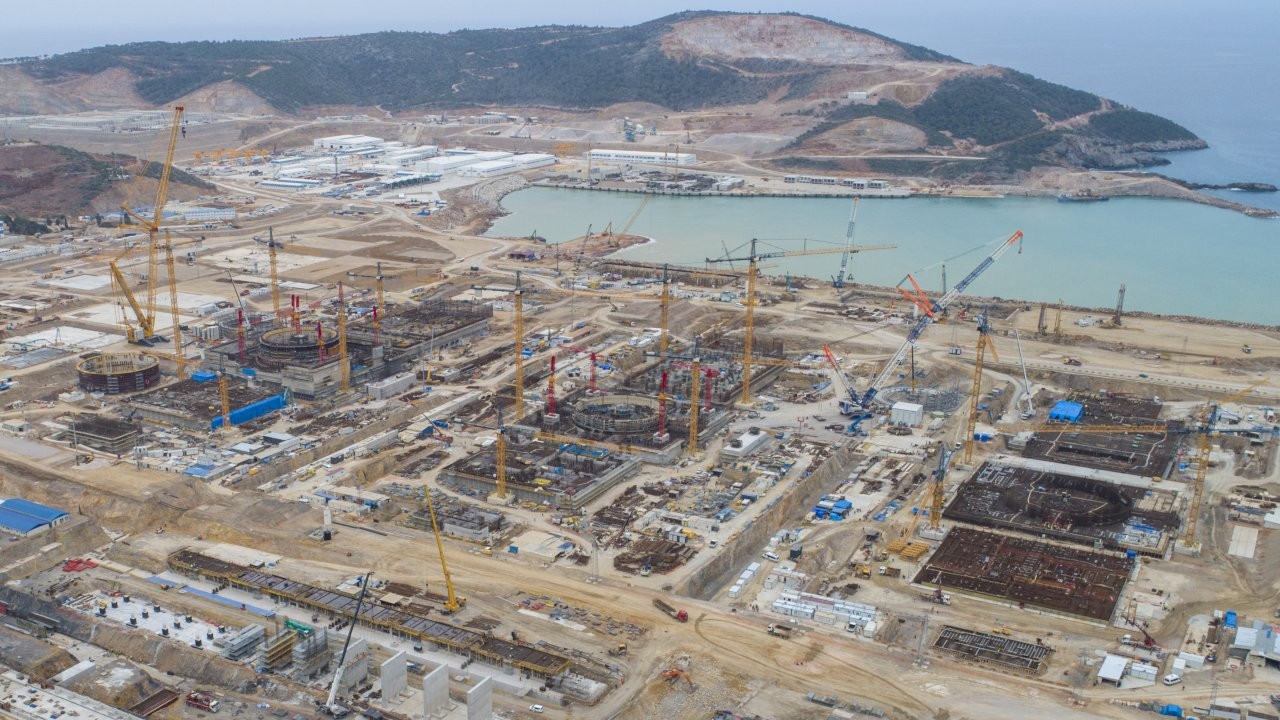Turkey’s President Recep Tayyip Erdogan announced that the first power unit of the Akkuyu nuclear power plant (NPP) — being built by Russian nuclear conglomerate Rosatom in southern Turkey — may be put into operation next year.
President Erdogan made his statement as part of his talks with Russian President Vladimir Putin in Sochi, the first in-person meeting for 18 months.
“I visited the Akkuyu NPP; construction is on track,” TASS quoted Erdogan as saying on Wednesday.
“I was told construction of the nuclear power plant would end by a certain date. I believe we will be able to open the first power unit of NPP in the next year. Certainly, intensive work continues,” he added.
Earlier in September, President Erdogan expressed hope that the nuclear power plant’s first unit would be completed by May 2023, marking 100 years since the founding of Republic of Turkey.
The $20-billion project financed by Russia’s Rosatom State Atomic Energy Corporation will be the first nuclear power plant built in Turkey. The intergovernmental cooperation agreement signed in 2010 provides Russia with a 99.2 percent stake in the project, with the remaining 0.8 percent are owned by Turkey. The construction of the Akkuyu NPP began in 2018.
The project envisages the construction of four generating pressurized water reactor units with a total capacity of 4,800 megawatts, which will be able to produce nearly 35 billion kilowatt-hours (kWh) of electricity annually. Located near the port of Mersin, on the Mediterranean coast of Turkey, the Akkuyu site is connected by sea, enabling transportation of heavy machinery to the site. It is close to centers of electricity consumption such as Adana, Konya, Antalya, and Mersin.
At the same time, the NPP will be the first to use the BOO (Build-Own-Operate) co-investment model, meaning that Russia is responsible for both helping build the plant and the overall safety and operation of the facility once it is up and running.
The large-scale joint Russian-Turkish project is supposed to reduce Turkey’s dependence on energy imports. Four Rosatom’s flagship VVER-1200 reactors will secure ten percent of Turkey’s power needs. It is expected that the facility will have a service life of 100 years.
Russia’s state-owned nuclear body, Rosatom, ranks third worldwide in terms of nuclear power generation. The energy giant is also the global leader in the simultaneous implementation of nuclear power plant units, holding the world’s largest portfolio of foreign construction projects.
According to the World Nuclear Association, Rosatom’s ten nuclear power plants operate 35 reactors totaling 26,983 megawatts (MW) of power and produce 18.7 percent of Russia’s total electricity.
Russia and Turkey have historically experienced ups and downs in cooperation, balancing regional rivalries with finding common ground on economic and strategic interests. Over the last years, cooperation between Moscow and Ankara has faced a wide range of challenges amid escalating tensions in Syria where the two countries back opposing sides, as well as in Libya, Afghanistan, and the South Caucasus.
Meanwhile, the relations between the two countries are likely to go uphill since, according to Putin’s statement as he sat down with Erdogan on Wednesday, the two sides have learned to find compromises that are beneficial to both sides.







 Azerbaijan’s historical biographical film “Taghiyev” has won the Best Feature Film award at the Dehancer Colorist Awards 2024. The film, which chro...
Azerbaijan’s historical biographical film “Taghiyev” has won the Best Feature Film award at the Dehancer Colorist Awards 2024. The film, which chro...
 Azerbaijan has been recognized as one of the safest countries in the world, ranking 90th among 163 countries on the Global Terrorism Index 2025 (GTI).
Azerbaijan has been recognized as one of the safest countries in the world, ranking 90th among 163 countries on the Global Terrorism Index 2025 (GTI).
 The Azerbaijani Defense Ministry has reported ongoing shelling of its army positions by Armenian forces since last week.
The Azerbaijani Defense Ministry has reported ongoing shelling of its army positions by Armenian forces since last week.
 Nine years have passed since a bloody escalation of the Armenia-Azerbaijan conflict that was later dubbed the April War or Four Day War.
Nine years have passed since a bloody escalation of the Armenia-Azerbaijan conflict that was later dubbed the April War or Four Day War.
 Azerbaijanis around the world are commemorating March 31 as the Day of Genocide of Azerbaijanis, which took place 107 years ago and is considered o...
Azerbaijanis around the world are commemorating March 31 as the Day of Genocide of Azerbaijanis, which took place 107 years ago and is considered o...



